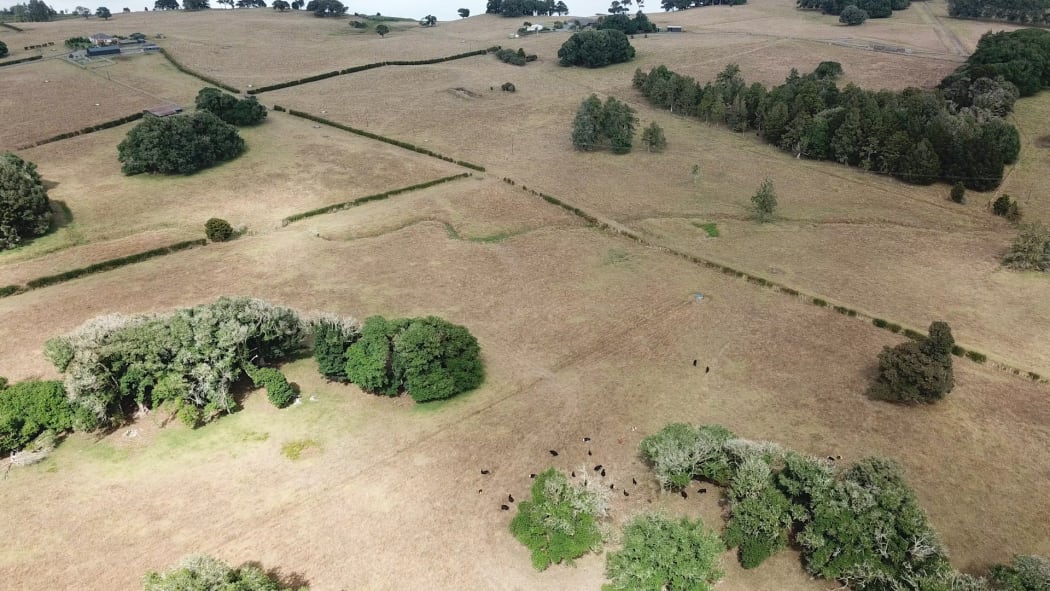
Photo: RNZ / Simon Rogers
Localised downpours in Northland this week were not enough to relieve the drought. A lot of farmers have used up their winter feed and they're looking at their options ahead - either buying in feed, offloading more cattle or finding grazing. They're about half way through the sale of weaner cattle. Space at the works for cows and bulls is still tight but space for prime beef has freed up.
Temperatures have been slightly lower this week around Pukekohe and six millimetres of rain fell in some places. That's not enough to maintain crop growth which continues to rely on irrigation. There's also concern about the possible adverse effects of Covid-19 on the vegetable industry and its likely disruption to the fresh food supply chain.
If you were under a rain cloud to get a good soaking in Waikato this week, you were lucky because most places only received about 6 to 10 millimetres which was only enough for the very top soil. It's so dry it's going grey. Apple harvesting is going well and the heat has meant good coloured fruit. One farmer posted a video of himself walking across the Waipa river showing how the water didn't go into his gumboots. Normally it would be over his head.
Bay of Plenty received some helpful rain on Wednesday ... enough to green the grass and keep it alive. Dairy farmers are culling poor producing cows. The first red kiwifruit are being picked this week and heading for Singapore and Japan. The gold and green orchards without irrigation have small fruit as they're not able to size up in the dry but they should be sweet.
There's a green tinge to pasture around Ruapehu with 15 to 25 millimetres of rain falling over most of the district on Wednesday. The cooler weather is keeping eczema at bay. With three cuts of silage after the good spring, there's enough feed.
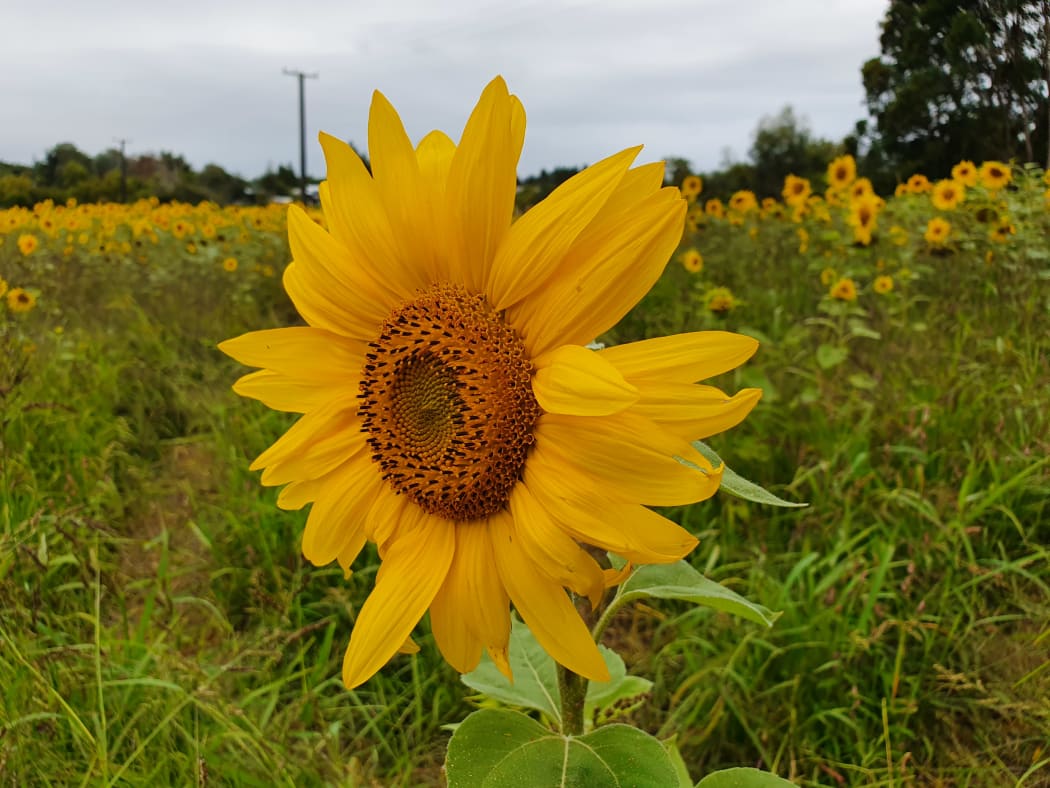
A paddock of sunflowers in the Horowhenua district Photo: RNZ/Sally Round
Over in Taranaki, rain that fell a few weeks back is propping the region up. The consultant we called says there is good coverage of pasture but if there is no rain soon, farmers will have to start making tough calls about getting rid of stock. Most farms are now on once-a-day or 16-hourly milking. Production is ahead of last year.
On the East Coast, the rams are a starting to go out. Our contact in Gisborne says the region is in the same boat as most of the North Island, dry. A good rain fell this week. It wet the ground but didn't break the drought by any means. Farmers are tight on feed and water which could have an impact on ewe tupping.
The grape harvest is well underway in Hawkes Bay in what is a very early vintage this year. Our vineyard contact says fruit quality after the long hot summer is exceptional with no rot to speak of. A farmer in central Hawkes Bay says three to four millimetres of rain fell in his region but it was more of psychological benefit than anything else. It's a sign the weather pattern's changing and it does help soften the soil ready for the next rain. Everyone's continuing to destock. He says you can still make good margins on store lambs.
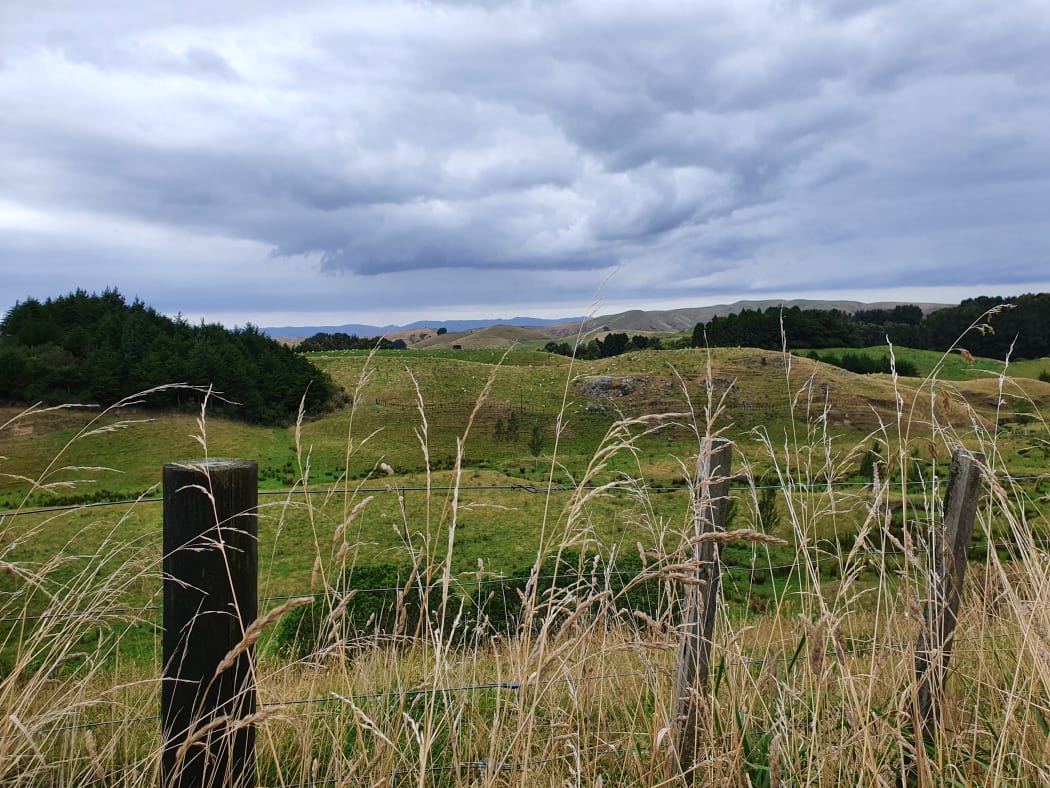
A green tinge to pasture in the Tararua district, east of Palmerston North Photo: RNZ/Sally Round
A farmer in Manawatu says he had some rain this week but not enough for the grass to punch away just yet. He attended a discussion day with other farmers who can see the light at the end of the tunnel as they cope with problems like the high cost of feed, a lack of water, stock getting stuck in dams, bottlenecks at the works and the effects of Covid-19. A problem shared is a problem halved and it's good to have a chat and a beer to chew over problems and strategies.
Wairarapa had a sniff of rain this week but it's getting serious with dams drying up and a lack of pasture. A farmer says he's feeding barley twice a day and baleage in between. It costs time and money ... $150 a day to run the tractor. Farmers are in catch up mode as they head into winter.
A fruit grower at Brightwater in the Nelson/Motueka region says he's in the thick of Royal Gala picking. Volume is down a bit but size and quality are excellent. The next cab off the rank in many orchards is Ambrosia followed by Lady in Red and Braeburn. Golden Queen peaches and pears are also being picked. Water restrictions are at 50 percent so fruit growers are having to manage their irrigation systems carefully.
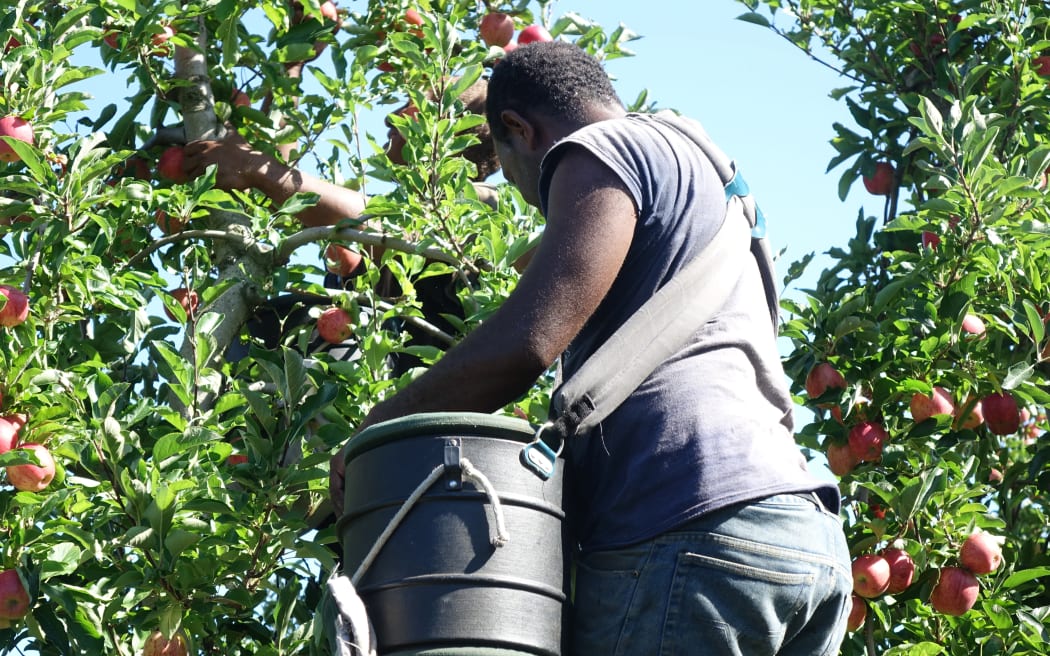
Apple harvest in Hawkes Bay Photo: RNZ / Johnny Blades
Sauvignon Blanc grapes in Marlborough have a brix or sugar level of 15 so by the time they're harvested in three or four weeks they should be at 21. A grower near Blenheim says he thinks it'll be an exceptional vintage. Nets are going onto the vines and foliage spray applications continue. Pinot Noir harvesting's already underway in some vineyards so the last thing growers need now is rain. It's a different story on hill county properties where farmers are desperate for moisiture. The biggest challenge leading up to tupping is trying to keep ewe condition up for the ram, as feed quality's very low on the hills. Tonnes of high protein baleage is being fed out as a supplement for the sheep. People are also looking at weaning calves a month early due to the extremely dry conditions.
On the West Coast, things are looking fine and beautiful after a week of rain. One Hokitika dairy farmer says he has had flooding and 95 millimetres in the gauge. The cows are enjoying being milked once a day.
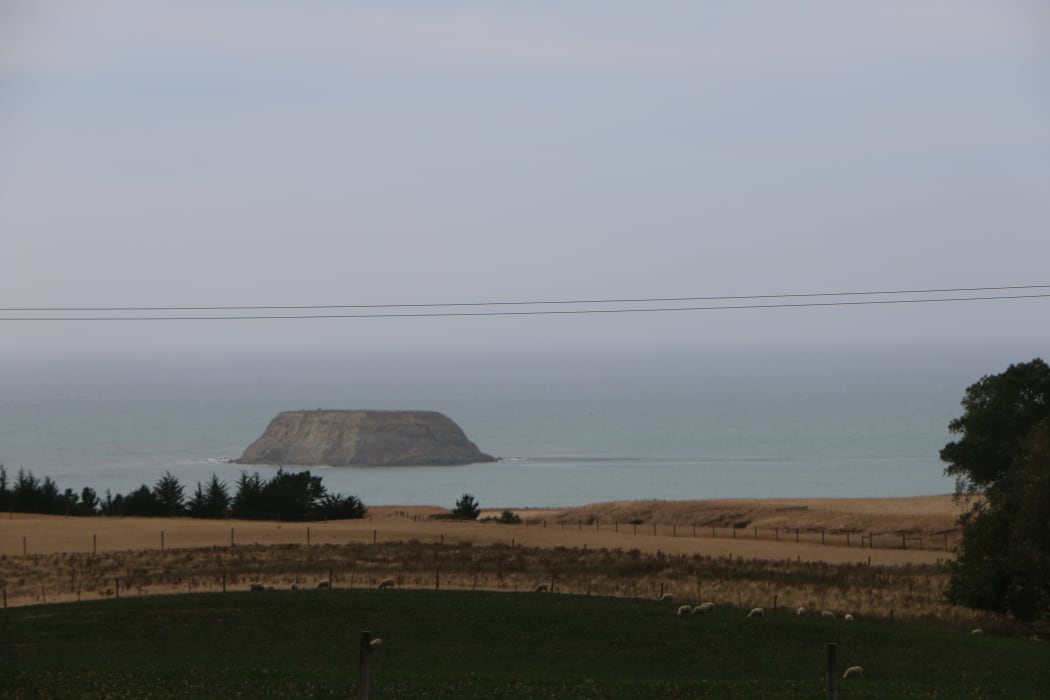
Motunau, North Canterbury. Photo: RNZ / Maja Burry
Canterbury's received bits and pieces of rain this week. Some areas have received reasonable amounts, however North Canterbury seems to have missed out. Grass growth under irrigation is good while dryland areas continue to struggle with the dry conditions. Harvest on arable farms is very slow at the moment due to the weather and they're hoping this improves soon.
In South Otago, lots of lambs are being shorn. The Balclutha sheep and beef farmer we spoke to says the mornings are cool but things are ticking along just nicely. Stock is looking in great condition but a shower of rain wouldn't go amiss as pastures are starting to dry out. In Central Otago, nectarine picking is well under way with quality looking fantastic as it heads to the shops. Plums are just getting underway starting.
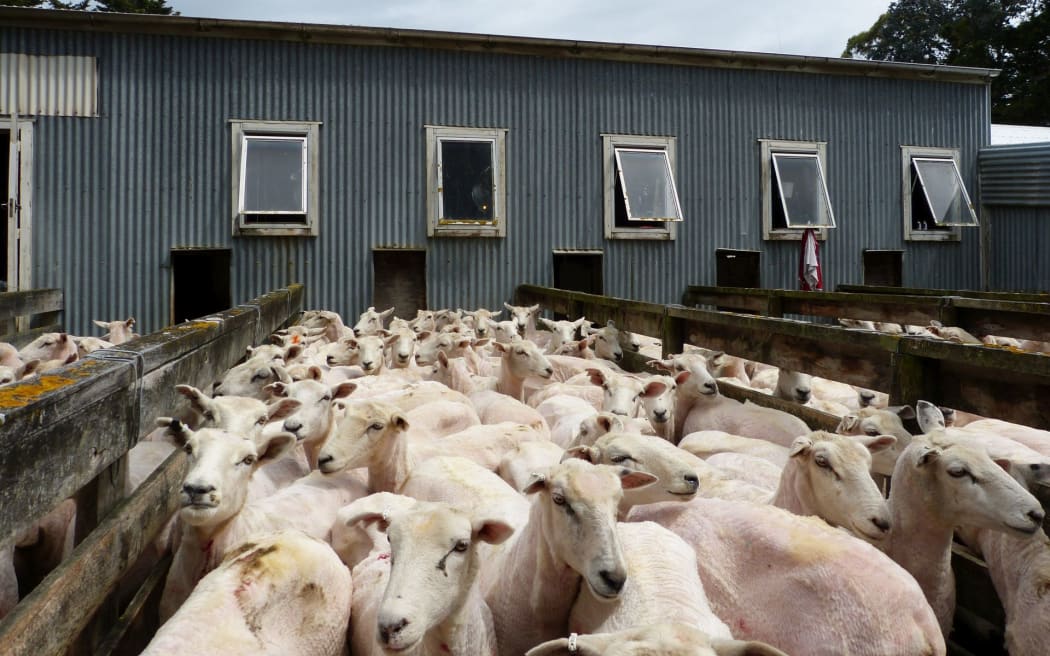
Freshly shorn sheep. Photo: RNZ / Alexa Cook
In Southland, the region is in pretty good shape. Our contact says pasture growth has slowed up in the last week after a few light ground frosts. Grain is starting to come off with yields in flood-affected areas down but in other places it's looking strong.

